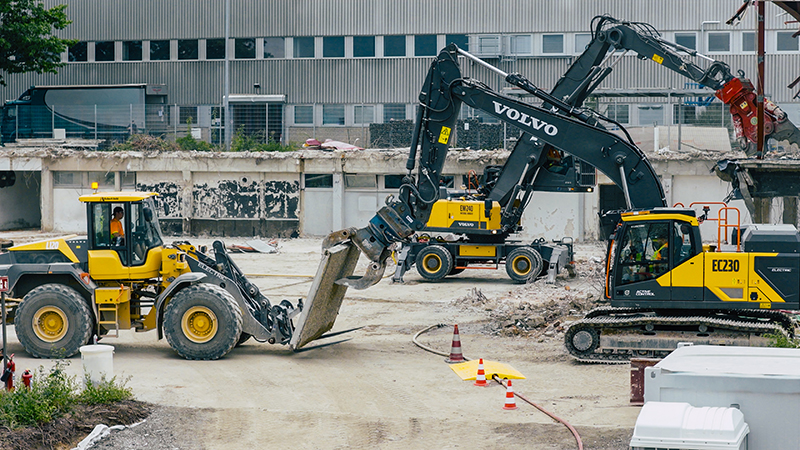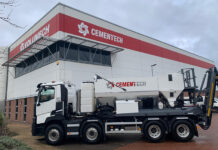ALL-electric machines from Volvo Construction Equipment and Volvo Trucks have helped to power what has been described as the world’s first fully electric deconstruction site in Erlangen, Germany.
The initiative forms part of Siemens’ €500 million Technology Campus development. In collaboration with demolition specialist Metzner Recycling, Volvo CE deployed a fully electric fleet – including compact, mid-size and grid-connected construction machines – to deliver demolition across a 25,000 cubic metre site. Electric trucks from Volvo Trucks supported material transport, enabling fully emission-free operations from selective gutting through to concrete crushing, materials processing, and transport.
Volvo CE said the project marks the first full-scale electric deconstruction of its kind.
“Our transformation is no longer a vision, but a reality,” said Therese Schmitz-Hillebrecht, head of market area Central Europe at Volvo CE. “We don’t just develop electric construction machines – we accompany our partners on the path to an emission-free future. The fact that companies like Metzner and Siemens are joining us on this path is a strong sign.”
As well as deconstruction tasks, the electric machines helped sort and process some 12,800 tons of construction waste, with 96% recycled into raw materials for future use.
Christian Franz, head of sustainability at Siemens Real Estate, added, “At Siemens Real Estate, we are committed to pushing the boundaries of sustainable construction and demolition. This groundbreaking electric deconstruction project boasts an impressive 96% recycling rate and is a testament to our commitment to achieving excellence in sustainability.”
Michael Metzner, MD of Metzner Recycling, commented, “The fact that we have now taken the first major step towards an all-electric, low emission dismantling site as a technical standard is a huge success for us – the Metzner team – and our clients. Electric equipment could unlock urban projects currently held back by noise and pollution concerns.”












